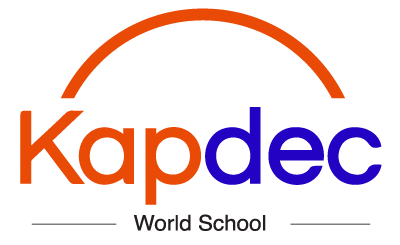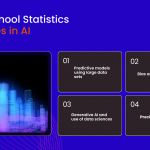Studying harder doesn’t always mean better results. Many students spend hours buried in textbooks but still struggle with retention and performance. The real secret lies in studying smarter—using techniques that improve focus, boost memory, and maximize efficiency. This guide breaks down proven strategies to help you transform the way you learn (Refer).
Why “Studying Smarter” Matters
Traditional learning often focuses on repetition and long hours, but research shows that effective learning depends more on strategy than time spent. Smarter studying allows students to balance academics with extracurriculars while still excelling in exams and long-term retention.
Key Strategies to Study Smarter
1. Active Recall and Spaced Repetition
Instead of just re-reading notes, practice active recall by testing yourself on key concepts. Combine this with spaced repetition—reviewing material at increasing intervals—for long-term memory retention.
2. Set Clear and Specific Goals
Break down big topics into smaller, manageable tasks. For example, instead of saying “study math,” set a goal like “review quadratic equations for 30 minutes.” Specificity keeps you accountable and prevents overwhelm.
3. Create a Distraction-Free Study Space
Your environment impacts focus. A quiet, organized space with minimal digital distractions makes a huge difference. Tools like website blockers or the Pomodoro Technique can help maintain concentration.
4. Use Visual Learning Tools
Mind maps, diagrams, and flashcards are excellent for visual learners. Turning abstract concepts into visual patterns enhances comprehension and recall.
5. Practice Retrieval, Not Just Recognition
When you quiz yourself, force your brain to retrieve the answer without looking. This strengthens neural pathways and ensures you truly understand the material, not just recognize it when you see it.
6. Balance Study and Breaks
The brain works best in focused intervals. Use the Pomodoro method (25 minutes of work, 5 minutes of rest) to avoid fatigue while keeping energy levels high.
7. Teach What You Learn
Explaining concepts to others (or even to yourself out loud) is one of the most effective ways to master a subject. If you can teach it, you’ve truly learned it.
FAQ’s
What is the difference between studying harder and studying smarter?
Studying harder often means putting in long hours, re-reading notes, and memorizing without structure. Studying smarter, on the other hand, focuses on using proven learning techniques—like active recall, spaced repetition, and structured breaks—that help you retain information faster and more effectively. It’s about quality over quantity.
How can active recall help me study smarter?
Active recall forces you to bring information out of your memory rather than just recognizing it on a page. For example, instead of re-reading a definition, you close your book and try to write it from memory. This method strengthens neural connections, making it easier to remember during exams. Combined with spaced repetition, it’s one of the most powerful learning strategies.
What role does time management play in smarter studying?
Time management prevents burnout and ensures consistency. Using techniques like the Pomodoro method (25 minutes study + 5 minutes break) helps maintain focus while avoiding fatigue. Scheduling tasks in small, specific blocks—like “solve 10 practice problems in physics”—makes studying feel less overwhelming and more productive.
Can my study environment affect how smart I study?
Absolutely. A cluttered or noisy environment creates distractions, reducing concentration and retention. A clean, quiet space with good lighting can boost focus and motivation. Some students also benefit from background instrumental music or noise-canceling headphones to create the right mental setting.
Is teaching others really an effective way to study smarter?
Yes, teaching others is one of the most powerful strategies. When you explain a concept in simple words, you’re forced to truly understand it, not just memorize it. This technique—sometimes called the Feynman Method—turns passive learning into active mastery.
How can online learning platforms like Kapdec help me study
Kapdec combines personalized tutoring with advanced techniques like concept breakdowns, practice problem-solving, and real-time feedback. Instead of generic learning, students get tailored guidance that focuses on strengthening weak areas. This ensures time is spent wisely, making learning more efficient and results-driven.
Final Thought
Studying smarter is about efficiency, not endless hours. By using methods like active recall, goal-setting, and structured breaks, students can unlock better performance with less stress. At Kapdec, our tutoring methods are built on these smart strategies—helping students not only prepare for exams but also develop lifelong learning skills.







